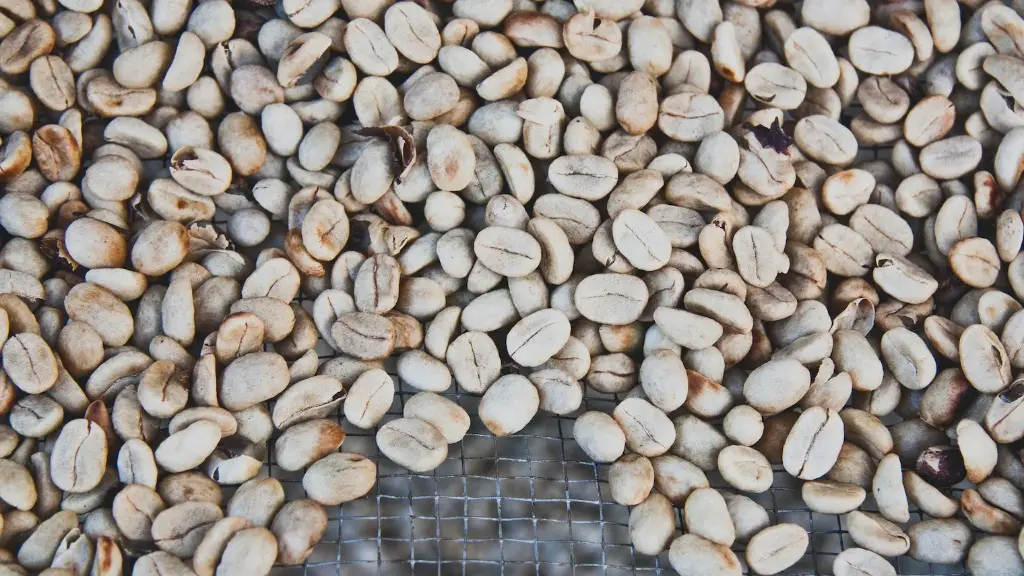Does Drinking Coffee Stunt A Child’s Growth?
It is commonly thought that drinking beverages containing caffeine can stunt a child’s growth. This question has been asked about coffee for decades and there is still a great deal of debate around the issue. Although there is no clear answer, there are certain aspects to consider when contemplating the effect of coffee on a child’s growth.
Coffee is a popular beverage choice amongst adults and children alike due to its stimulating effects and delicious taste. The main ingredient in coffee is caffeine, a stimulant, making it an attractive choice for those looking for an energy boost. However, it is important to remember that caffeine is a drug and can have negative effects on children’s health if consumed in excessive amounts.
The argument of whether or not coffee stunts the growth of a child has been disputed since the late 1950s when the National Coffee Association first addressed the issue. According to the US National Library of Medicine, although some studies have suggested that caffeine can have a negative effect on growth, these studies are outdated and inconclusive. In fact, current research shows that there is no direct link between caffeine consumption and physical growth in children.
It is important to remember that individual reactions and effects of caffeine consumption differ from person to person and depend on the frequency and quantity of caffeinated beverages consumed. Therefore, it is not recommended for children to drink large amounts of coffee or other caffeinated beverages on a daily basis. In addition, a child who is still growing should not consume more than 25mg of caffeine a day. To put this into perspective, an 8-ounce cup of brewed coffee contains approximately 95mg of caffeine.
Given the lack of scientific evidence that suggests caffeine can stunt growth, pregnant women and breastfeeding mothers, who are likely to be consuming more caffeine than other adults, may still be able to enjoy their morning cup of coffee without worry. However, although it is likely safe in moderation, it is important to remember that caffeinated beverages, including coffee, are not necessary for a healthy diet. Furthermore, while caffeine may help with concentration and alertness, it should always be consumed in moderation.
In conclusion, although there is a lack of scientific evidence to support the statement that drinking coffee stunts a child’s growth, it is important to be mindful of the negative effects of too much caffeine on a developing body and mind. With that said, if children do not consume more than 25mg of caffeine a day and coffee is consumed in moderation, it is unlikely to stunt their growth in any way.
Caffeine Content in Children’s Beverages
It is important to remember that caffeine can be found in many different sources, including coffee and sodas. The amount of caffeine in each drink can vary significantly and is normally indicated on the packaging. For example, a standard 8 ounce cup of coffee can range from 95 mg to 200 mg while a can of soda contains between 35 mg to 55mg. Therefore, it is important to be mindful of the caffeine content of any drinks that a child might consume.
Beyond coffee and sodas, some children’s beverages, including sports drinks, energy drinks, and teas, can contain high levels of caffeine. For instance, a single can of some popular energy drinks can contain up to 79mg of caffeine. It is especially important for parents to be aware of these drinks as children may not be aware of the high caffeine content. Therefore, it is important to keep track of a child’s caffeine intake.
In addition, it is important to be aware of some of the common symptoms associated with excessive caffeine intake, including insomnia, headaches, stomach pains and irritability. Most signs of too much caffeine should resolve within a few hours, but if you notice any adverse effects in your child, it is best to reduce their caffeine consumption.
Exercise and Proper Nutrition
In addition to being mindful of caffeine intake, it is important for children to maintain a healthy diet and regular exercise in order to promote optimal growth and development. A balanced diet that is rich in essential vitamins and minerals is important for physical and mental health in children. Furthermore, regular exercise can improve overall health and well-being. A child that is physically active is more likely to have increased bone mineral density, which can aid in growth.
It is also worth noting that a child’s environment can have an impact on their growth. A child that is provided with a safe and supportive environment is more likely to thrive. This includes providing them with positive encouragement and opportunities to explore, learn, and grow.
In summary, while it is unlikely that coffee will stunt a child’s growth, it is still advisable to be mindful of a child’s caffeine intake and ensure that they are consuming a healthy diet and exercising regularly in order to promote physical and mental health.
The Effect of Caffeine on Learning
In addition to physical health, it is important to consider the effect of caffeine on a child’s mental health and learning ability. Caffeine is a stimulant and can improve alertness, focus and energy. This can body have a positive effect on a child’s ability to concentrate, especially for those with Attention Deficit Hyperactivity Disorder (ADHD).
However, it is important to consider that caffeine can also have negative effects on some children, including insomnia, nervousness, headaches and irritability. Furthermore, excessive caffeine consumption can affect both physical and cognitive performance, which may interfere with schoolwork and a child’s overall academic performance.
In addition, it is important to remember that the consumption of caffeine, including coffee, is an adult habit and can be habit forming. For this reason, it is not recommended for children to consume large amounts of coffee or other caffeinated beverages on a daily basis.
Risk Factors to Consider
Beyond caffeine content and physical health, it is important to consider any potential risk factors associated with coffee consumption in children. It is worth noting that coffee can contain chemicals such as pesticides and herbicides, which can be toxic to humans if consumed in large quantities. In addition, coffee can also contain small amounts of antacids, such as tannic acid, which can be harmful if consumed in large amounts.
Finally, it is important to consider any medical conditions that a child may have. For example, those with heart conditions or diabetes may need to be extra mindful of their caffeine intake. It is always advisable to speak with a doctor or healthcare professional before introducing any form of caffeine into your child’s diet.
Exchanging Caffeinated Beverages for Sugar-sweetened Drinks?
When considering coffee and other caffeinated beverages, it is important to remember that sugar-sweetened drinks can also be unhealthy and detrimental to physical health. Soft drinks, sports drinks and other sugar-sweetened beverages are high in sugar and calories, which can contribute to weight gain, cavities and other health problems.
Furthermore, sugar-sweetened beverages can also increase the risk of type 2 Diabetes, heart disease and stroke. Therefore, it is important to encourage children to drink plain water, as opposed to sugar-sweetened beverages, as it is essential for proper bodily function, including hydration and nutrient absorption.
Conclusion
To sum up, there is not enough scientific evidence to say that coffee or other caffeinated beverages can stunt a child’s growth. However, it is important to remember that individual reactions to caffeine can vary and too much caffeine can be detrimental to a developing body and mind. In addition, it is important to remember that caffeine is not necessary for a healthy diet and that children should be encouraged to drink plenty of water and maintain a healthy, balanced diet, which can aid healthy growth.





